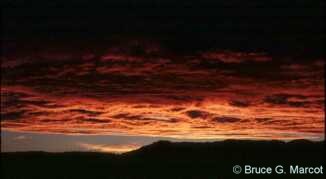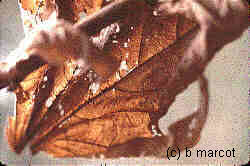Good Science is Bad Poetry
... but it is poetry, nonetheless.
But is poetry mere description?
Does not the poet -- like some insurgent of the intuition -- also re-form the world?
Etymologically, poetry refers to creativity and not simple romanticism; a poet is a "maker." \1
Likewise, the archaic definition of "maker" is "poet."Didn't Whitman write, "I am the poet of reality?"
Poetry is (e)motion recollected in contemplation.
And the heart of truth is empirical experience.
Thus, poetry is a creative action, engaging and re-shaping truth or totality, the heart of things.
Always shifting, always adjusting, always morphing.
Ah, if we could only photograph it and hold it still!Science? Scientific knowledge?
I have learned more by blundering my way around the world ... than I have learned by conducting academically planned, "statistically sound" scientific studies, which usually are more often the painful elaboration of self-evident patterns than the gateway to wisdom. To feel is to know.Somewhere in the Far East of Russia, in very southern Siberia, is the land of the Elduga River ... and its riverine cousins, its old conifer valley forests, and its vanishing wildlife. The land of endangered Siberian tigers and the nearly extinct Amur leopard and Blakiston's fish owl.
Over many ventures there, and elsewhere in Far East Russia and China, brought me to understand the hunters, trappers, and wildlife as cousins of my own.
I lived briefly with the Udege Tribe of the Bikin, tracked radio-collared leopards with the best of the "tiger men," camped in dense forests closed to all but the hardiest of scientists -- men and women dedicated to the plants and animals that birthed us all.
Elduga -- conjures it all for me ...... for Nature is within us,

it is the nature of us to see ourselves in tree ... and rock ... and soil.
We are the canyons, the ancient cliff-dwellers, the sky-watchers.It is the nature within us that not just knows, but intimately feels the harshness of the storm, just as it feels the pain that relation can bring.
There is no other truth than what we feel, no other truer canon than our own heart.
And for this, we should raise a cup in gratitude to the Udege, to the leopard, to the botanist ... brothers and sisters of the heart, all.
------------------------
\1 The word poet is derived from the Middle English poete, taken from the Latin poeta, taken from the Greek po(i)etes, meaning maker.Above two photos © Bruce G. Marcot.
